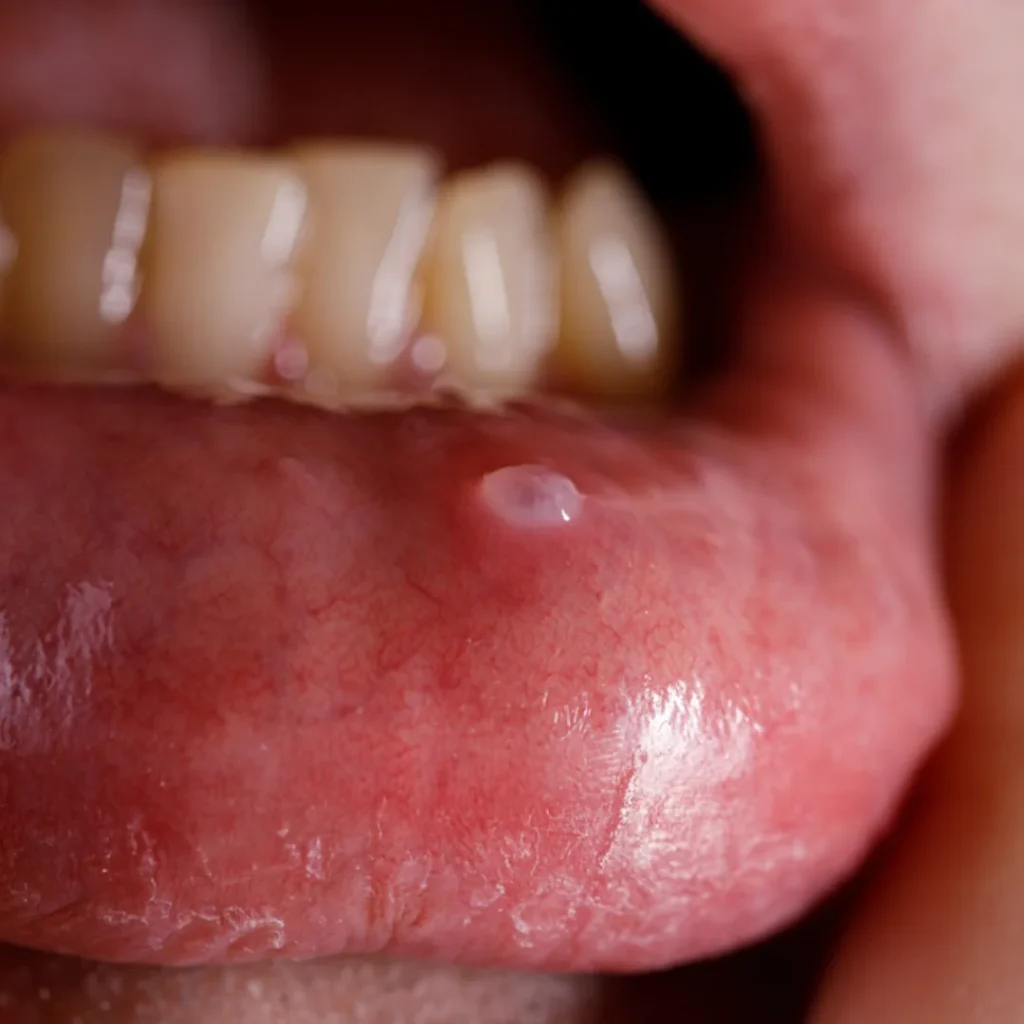Oral Cancer Treatment
What is a Oral Cancer ?
Oral cancer is like having a weed grow in your garden, where it shouldn’t be. It happens when cells in your mouth start to grow out of control, affecting areas like your lips, tongue, and cheeks. Just like catching a weed early helps you keep your garden healthy, finding oral cancer early is important for getting the right treatment and improving the chances of recovery.
Importance of Oral Cancer:
Tobacco Use
Smoking (cigarettes, cigars, or pipes) and smokeless tobacco (snuff or chewing tobacco).
HPV Infection
Certain strains of the Human Papilloma Virus are linked to oral cancer.
Immunosuppressant Drugs
These medications can lower the body's ability to fight infections.
Poor Oral Hygiene
Neglecting dental care can lead to increased risk.

Book Your Appointment Now

Why Choose Oral Cancer Treatment at CandidSmiles?
25+ Year of Experienced
Dr. Gopal has over 25 years of experience, ensuring you receive the best services.
Sterilized tools
Sterilized tools are tools that have been treated to kill all germs that can cause infections.
Expert Team
Led by Dr. Gopal Goel, our experienced dental professionals specialize in implant procedures with a focus on safety and comfort.
Comfortable Environment
Enjoy a stress-free experience with our state-of-the-art facility designed for patient comfort and relaxation.


Common Causes of Oral Cancer?
Excessive Alcohol Consumption
Regular and heavy alcohol use is a major risk factor, especially when combined with tobacco use.
Human Papillomavirus (HPV)
Certain strains of HPV, particularly HPV-16, are linked to oropharyngeal cancers, which can affect the tonsils and the base of the tongue.
Sun Exposure
Prolonged exposure to the sun, especially without protection, can increase the risk of lip cancers.
Poor Oral Hygiene
Poor dental care, including neglecting oral hygiene and having ill-fitting dentures or rough teeth, can contribute to the development of oral cancer.
Diet and Nutrition
A diet low in fruits and vegetables can increase the risk, as these foods contain vitamins and antioxidants that may help protect against cancer.
Genetics
Some people may have a genetic predisposition that makes them more susceptible to oral cancer.
Weakened Immune System
People with compromised immune systems, whether due to illness or medications, may be more vulnerable to developing oral cancer.
Tobacco Use
Smoking cigarettes, cigars, pipes, and chewing tobacco are the leading causes of oral cancer. Both smoking and smokeless forms of tobacco significantly increase the risk.
Kind words from our patients
After years of struggling with dentures, getting implants at CandidSmiles was life-changing. I feel confident, and eating is no longer a challenge. The team made me feel comfortable every step of the way

Anjali Kumari
I was nervous about the procedure, but Dr. Goyal explained everything so well, and it went smoothly. My new teeth look fantastic!

Rohit S.
After years of struggling with dentures, getting implants at CandidSmiles was life-changing. I feel confident, and eating is no longer a challenge. The team made me feel comfortable every step of the way

Anjali Kumari
Featured Video For Oral Cancer


Book Your Appointment Today
Contact us today to schedule your consultation and discover if dental implants are the right solution for you.
F.A.Q
Oral cancer refers to cancer that develops in any part of the mouth or oral cavity, including the lips, tongue, cheeks, gums, roof of the mouth, floor of the mouth, and throat.
- Persistent sores or ulcers in the mouth that do not heal.
- Red or white patches inside the mouth.
- A lump or thickening in the cheek.
- Difficulty chewing, swallowing, or moving the jaw or tongue.
- Persistent sore throat or hoarseness.
Individuals at higher risk include:
- Smokers and tobacco users.
- Heavy alcohol drinkers.
- People exposed to the Human Papillomavirus (HPV).
- Those with excessive sun exposure (for lip cancer).
- Individuals with poor diet or oral hygiene.
- People with a family history of cancer.
A dentist or doctor may detect oral cancer through a physical exam and by looking for abnormal tissues in the mouth. Biopsies, imaging tests (like CT, MRI, or X-rays), and blood tests are used to confirm the diagnosis.
When detected early, oral cancer can often be treated successfully. However, advanced cases may be harder to treat, which is why early detection is critical for improving survival rates.
Treatment may include:
- Surgery: To remove the tumor.
- Radiation therapy: To kill cancer cells.
- Chemotherapy: To target and destroy cancer cells.
- Targeted therapy: Uses drugs to attack specific cancer cells.
- Immunotherapy: To boost the immune system’s ability to fight the cancer.
Get Started Today!
CandidSmiles : Bringing Smiles to Life with Expertise and Compassion.
If you're ready to explore dental implants and see how they can change your life, contact us now or book an appointment online.
Our friendly team is here to guide you every step of the way.

